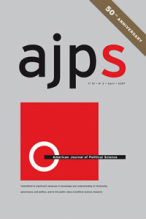Causes of Non-Compliance with International Law: A Field Experiment on Anonymous Incorporation
|
Article: view here
|
Citation:
Findley, Michael G., Daniel L. Nielson, and J. C. Sharman. 2015. "Causes of Non-Compliance with International Law: A Field Experiment on Anonymous Incorporation." American Journal of Political Science 59(1): 146-161. Abstract: Using two field experiments we probe the efficacy of international rules mandating that incorporation services establish their customers’ true identities. The standards were designed to prevent anonymous “shell” corporations central to money laundering, corruption, and other crimes. Posing as consultants seeking confidential incorporation, we randomly assigned six experimental conditions in emails varying information about monetary reward, international and domestic law, and customer risk to 1,793 incorporation services in 177 countries and 1,722 U.S. firms. Firms in tax havens obey the rules significantly more often than in OECD countries, while services in poor nations sometimes prove more compliant than in rich countries. Only the risk of terrorism and specter of the IRS decrease offers for anonymous incorporation, but they also lower compliance. Offers to “pay a premium” reduce compliance. The risk of corruption decreases response rates but, alarmingly, also decreases compliance rates. Raising international law has no significant effect.
Google Scholar Citations Replication Data: Zipped file here
Appendix: here Registration: Preregistered with Yale ISPS (here) and grandfathered into EGAP registry (here as study #[0]20110302); Preregistration document applies to other published articles including in IO and Cambridge. |
